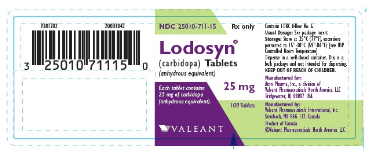This is an automatically translated article.
Article by Master, Doctor Nguyen Thi Minh Phuong - Doctor of Neurology - Department of General Internal Medicine - Vinmec Times City International Hospital
Bell's facial paralysis is a condition that can occur at any age. However, pregnant women are more likely to develop 7th cranial nerve palsy when exposed to sudden cold. This condition can affect the health as well as aesthetics of women.
1. What is Bell's facial paralysis?
The muscles of the face are innervated by the VII nerve. When the VII cord is damaged / inflamed, it will cause paralysis of the facial muscles, making the patient unable to wrinkle the forehead, close the eyes, and sag the side of the paralyzed side.
Bell's facial palsy is most common in two age groups: people under 40 years old and people over 60 years old. Especially bell face paralysis in pregnant women in the first 3 months - the end of pregnancy or the first week after giving birth.
Bell's palsy is the most common cause of facial paralysis with an estimated prevalence of 11-40 people per 100,000 people. The prevalence of Bell's palsy during pregnancy is 45.1 per 100,000 births per year, compared with 17.4 in the same age group without pregnancy.
2. What causes facial paralysis during pregnancy?
The most common cause of facial paralysis in pregnancy is Bell's palsy. People who are pregnant have a higher risk of developing Bell's palsy than those who are not.
Although the cause of the disease is still unknown, scientists believe that the disease may be related to exposure to the virus. Some viruses can cause Bell's palsy such as: Herpes Zoster (chicken pox, shingles) Herpes simplex (genital herpes) Ebstein-Barr Rubella (German measles) Adenovirus (respiratory diseases) Mumps Coxsackievirus Influenza B Chronic high blood pressure and obesity are also considered risk factors for the development of Bell's palsy. Therefore, being pregnant may combine several factors to increase the risk of Bell's palsy.

Herpes Zoster là một trong các nguyên nhân gây liệt mặt Bell ở phụ nữ mang thai
3. Why has the incidence of Bell's palsy in pregnancy increased?
Some physical changes during pregnancy are thought to increase the risk of Bell's palsy in pregnant women, including:
Blood clotting disorders. High blood pressure Eclampsia (beginning of seizures in a woman with preeclampsia). Increases total body water - fluid retention can build up around nerves. Changes in estrogen and progesterone levels. Impaired glucose tolerance Increased cortisol levels: Cortisol begins to rise in the second 3 months and peaks in the last few weeks before birth at two to three times higher than normal. It is thought to play a role in the baby's brain development and lung maturation. During the last trimester of pregnancy or during the first week after childbirth, pregnant women are at particular risk of contracting the herpes simplex virus (HSV).
4. What are the signs and symptoms of Bell's palsy?
Each pregnant woman will have different signs of Bell's palsy. It has been documented that most pregnant women with this condition have one or more of the following symptoms:
Sudden onset of symptoms within hours Symptoms peak within 1-3 days No history of previous trauma, surgery, or localized infection Taste may change and eyes may become dry Difficulty raising eyebrows, blinking and closing eyes Watering tears Difficulty smiling and puckering lips Falling food and drinks / oozing from one side of the mouth
5. Method of diagnosing facial paralysis
To be able to accurately diagnose the medical condition, the doctor will have a number of clinical diagnoses to check such as: Recommend raising your eyebrows, smiling or baring your teeth; Please open and close your eyes (both sides)...
At the same time, the patient will also be checked for rashes on your skin, ears, hair roots or elsewhere on your face. A doctor's look for blisters in the mouth or lips also helps diagnose facial paralysis.
Bell's palsy may present with symptoms similar to other conditions. Therefore, the doctor needs to perform a scan to rule out other causes. These should be done after pregnancy, unless there are other signs suggesting brain damage.

Người bệnh nên gặp bác sĩ để được chẩn đoán liệt mặt Bell ở phụ nữ mang thai chính xác
6. How to treat Bell's facial palsy in pregnant women
There are no current NICE (National Institute for Health and Care Excellence) guidelines for the diagnosis, treatment, and monitoring of mother and fetus in pregnant patients with Bell's palsy. However, there is evidence that corticosteroids, eg Prednisolone, are effective in improving recovery and limiting the progression of facial paralysis. Treatment is most effective if started within 72 hours but is sometimes delayed during pregnancy if you have other risk factors during pregnancy.
Usually, the peak onset of complete or partial facial paralysis can be achieved within hours. Pregnant women with Bell's palsy are more likely to progress to complete facial paralysis on the affected side. This can lead to a poorer prognosis. Therefore, initiating appropriate and timely treatment is very important to ensure the patient has the best chance of a full recovery.
Doctors will prescribe preservative-free eye drops for regular use during the day and thicker ointments for nighttime use. At the same time, explain how to sleep eye bandages for pregnant women with facial paralysis and combine therapy with
7. What is the prognosis for Bell's palsy in pregnancy?
Many pregnant women worry about the prognosis of Bell's palsy. According to experts, the estimated recovery rate during pregnancy is 52% compared with 77-88% in the same age group of non-pregnant women.
8. Complications of bell facial paralysis in pregnant women
Pregnant women are very worried about the complications of Bell's facial palsy. Because this condition can cause many bad effects on the health of the mother and the fetus. Here are some expert-warned health risks of this condition:
Inability to close or blink Ease of dry eye symptoms due to hormonal and corneal changes Increased risk secondary damage or loss of vision... When complete facial paralysis makes it difficult to chew food in the mouth Here is detailed information about bell facial paralysis in pregnant women. Hopefully the article has helped pregnant women recognize the signs, complications and treatment of the above condition to limit the health risks.
Please dial HOTLINE for more information or register for an appointment HERE. Download MyVinmec app to make appointments faster and to manage your bookings easily.













